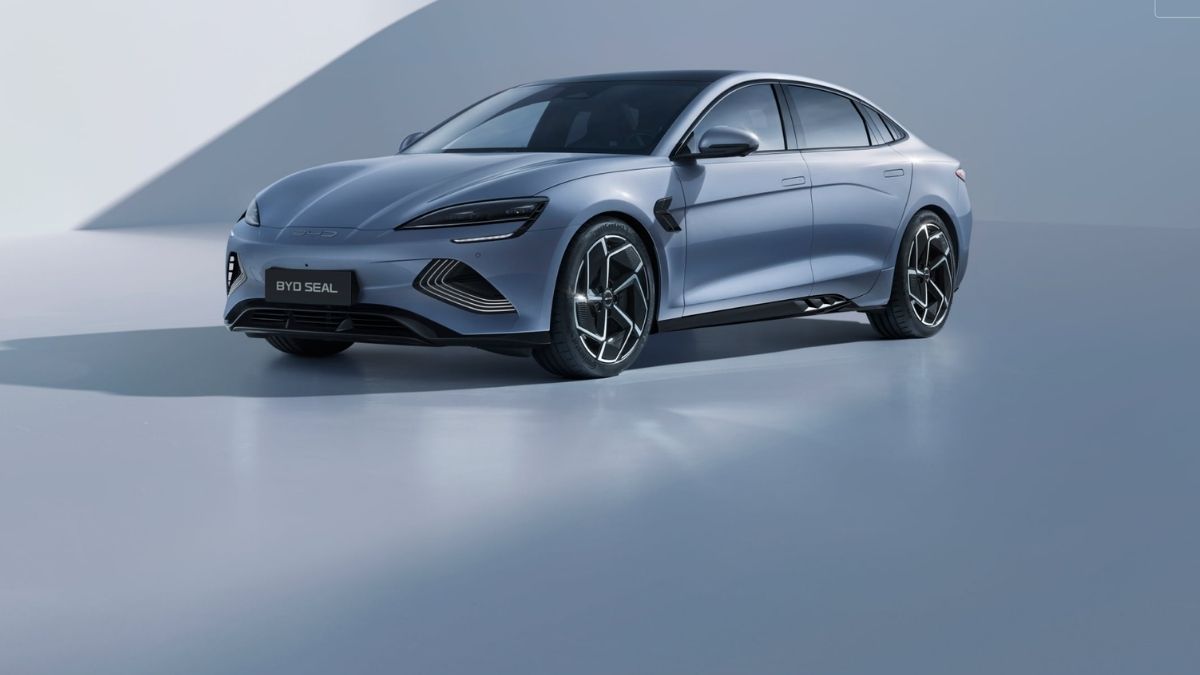Chinese electric vehicle (EV) and battery major BYD Auto Co. Ltd. reported a 23% year-on-year (YoY) increase in revenue for the second half of fiscal 2025, reaching 371.3 billion yuan (approximately $52.3 billion).
The strong growth reflects BYD’s expanding global footprint, driven by robust demand for its EV lineup, including the Seal, Atto 3, and Han models, as well as continued expansion in its battery and semiconductor businesses. The company’s vertically integrated supply chain and cost-efficient production model have positioned it as a dominant force in the global EV market, outpacing Tesla in China’s sales volumes.
BYD enters Japan’s kei car segment with locally developed Racco EV
In a major strategic move, BYD has announced its first locally developed electric kei car, the BYD Racco, designed specifically for the Japanese market. The model will make its debut at the Japan Mobility Show before launching in summer 2026, marking BYD’s entry into one of the world’s most competitive small-car segments.
Compact design tailored for Japan
Built within Japan’s strict kei car regulations, the BYD Racco measures 3,395 mm in length and 1,475 mm in width, featuring a sleek, modern design with C-shaped LED headlights, a continuous rear lightbar, and sporty alloy wheels.
A standout feature of the Racco is its sliding rear doors, a rare inclusion in kei-class vehicles, enhancing practicality for tight parking spaces. Inside, the car features a 10.1-inch touchscreen infotainment system, offering a tech-driven experience suited to urban lifestyles.
The Racco is powered by a 20 kWh battery pack, offering an estimated 180 km range (WLTC cycle). BYD has hinted at a 40 kWh extended-range variant, potentially doubling the driving distance. The car supports DC fast charging up to 100 kW, catering to quick, convenient top-ups.
Pricing and competition
The BYD Racco is expected to be priced around ¥2.6 million (approximately $17,000), positioning it against Japanese rivals such as Nissan Sakura and Honda N-Van EV. Kei cars account for nearly one-third of new passenger vehicle sales in Japan, making this launch a calculated push to tap into a lucrative market.
Localization strategy and industry impact
Unlike most foreign automakers that export vehicles to Japan, BYD’s decision to develop the Racco locally underscores its commitment to localization and long-term market presence.
Industry analysts say the Racco’s launch could challenge Japanese automakers’ dominance in the kei segment, signaling BYD’s growing confidence and global ambitions. The model could serve as a blueprint for future localized EVs targeting Japan’s unique urban transport ecosystem.
With its compact design, affordable price, and efficient electric powertrain, the BYD Racco represents a bold step in Japan’s EV transition, potentially reshaping how small-city commuters adopt electric mobility.
Disclaimer: The information provided is for informational purposes only and should not be considered financial or investment advice. Stock market investments are subject to market risks. Always conduct your own research or consult a financial advisor before making investment decisions. Author or Business Upturn is not liable for any losses arising from the use of this information.


